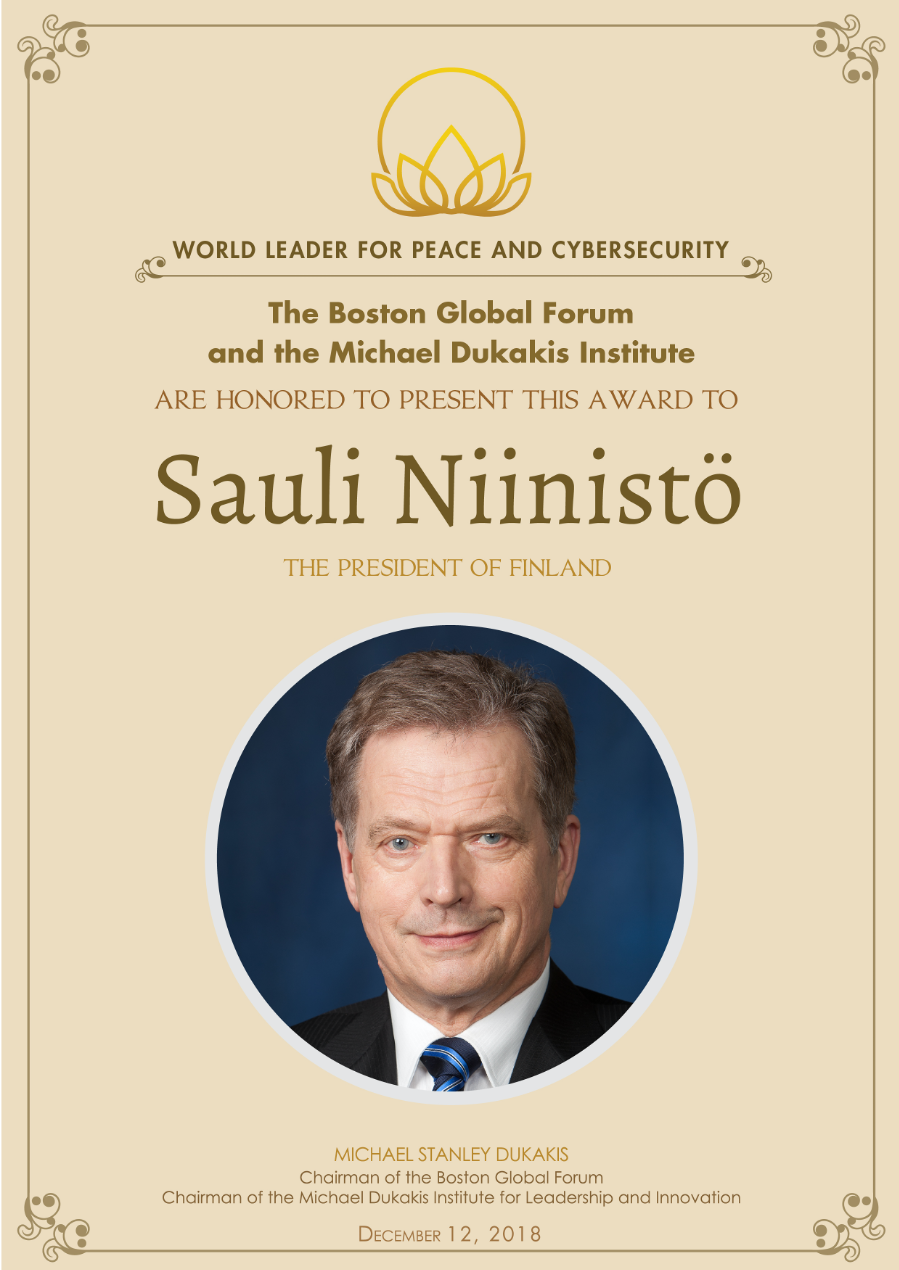
by Editor | Feb 24, 2020 | News
“The unstable world situation shows no signs of settling down. In an increasingly complex world, the requirements imposed on Finland’s foreign policy will grow.
In foreign policy, Finland does its utmost to promote peace, stability and long-term thinking. By supporting the common good on a broad front, we shoulder our share of responsibility for the world while at the same time advancing our own interests.
Ultimately, every nation forges its own destiny. Safeguarding our own position must continue to be the clear point of departure in Finland’s foreign and security policy. Nobody else will do this.
* * *
This year a quarter of a century has passed since our accession to the European Union. For Finland, the EU remains the most important source of economic prosperity and stability.
What I find especially significant is that the debate on European security is finally advancing. While the cooperation is still only taking its first steps, it lies in our interest that it continues.
Amidst intensifying superpower competition, the new EU Commission has chosen to define itself as “geopolitical”. This is positive. Only a strong Union can act on an equal basis with the United States, China and Russia, all keen to emphasize their power.
True enough, Europe is already a superpower in trade, economics, science and technology. They are areas which may shape tomorrow’s geopolitics. As part of Europe, we are also involved in this process.”
The Boston Global Forum honored President Sauli Niinisto with the World Leader for Peace and Cybersecurity Award on Global Cybersecurity Day, December 12, 2018 at Harvard University Faculty Club.
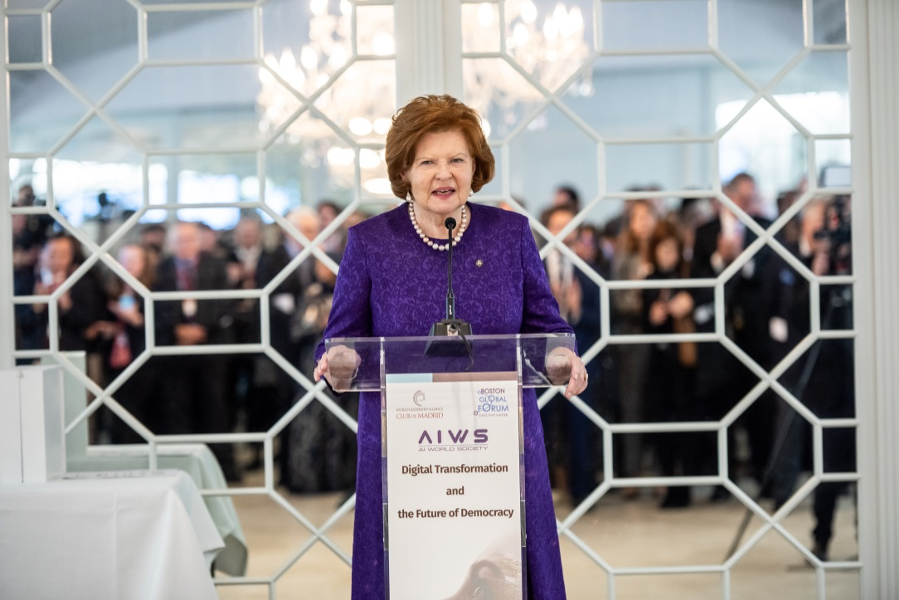
by Editor | Feb 24, 2020 | AI-Government, News, AIWS and the Age of Global Enlightenment
On February 19, 2020, the European Commission issued “WHITE PAPER on Artificial Intelligence – A European approach to excellence and trust”
“The Commission supports a regulatory and investment oriented approach with the twin objective of promoting the uptake of AI and of addressing the risks associated with certain uses of this new technology. The purpose of this White Paper is to set out policy options on how to achieve these objectives. It does not address +the development and use of AI for military purposes.The Commission invites Member States, other European institutions, and all stakeholders, including industry, social partners, civil society organisations, researchers, the public in general and any interested party, to react to the options below and to contribute to the Commission’s future decision-making in this domain.”
The EU is pursuing a digital strategy that builds on our successful history of technology, innovation and ingenuity, vested in European values, and projecting them onto the international stage. The White Paper on Artificial Intelligence (AI) and the European data strategy presented February 19, 2020 show that Europe can set global standards on technological development while putting people first.
Europe wants to lead the global digital transformation. The World Leadership Alliance, a partner of the Boston Global Forum, was very successful in organizing Policy Dialog “Digital Transformation and the Future of Democracy” on October 21-22, 2019 in Madrid. The World Leadership Alliance-Club de Madrid and the Boston Global forum will co-organize Policy Dialog “Transatlantic Approaches on Digital Governance:
A New Social Contract in Artificial Intelligence”, April 27-29, 2020 at Harvard University and MIT. The Boston Global Forum and World Leadership Alliance-Club de Madrid have significantly contributed for AI politics, and AI governance in 2018, 2019 with BGF-G7 Summit Initiative 4/2018 and AIWS-G7 Summit Initiative 4/2019.
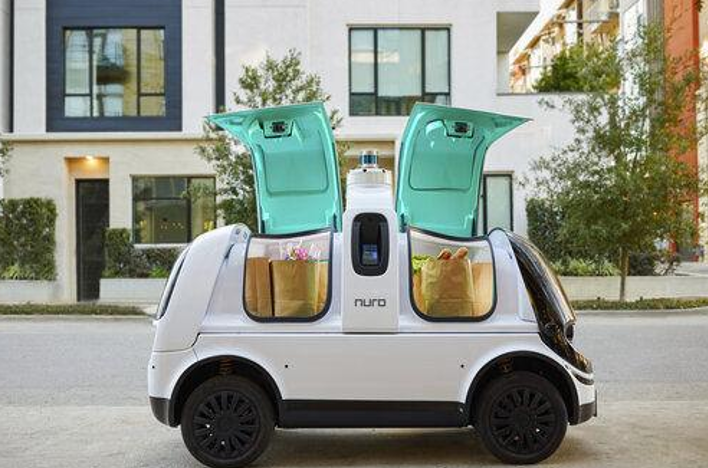
by Editor | Feb 24, 2020 | News
In a time when technology seems to evolve on a daily basis, the Federal Highway Administration is looking to lay the groundwork on integrating artificial intelligence into the transportation network.
The report goes into great depth on the past, present and future of AI, and how emerging machine learning is expected to help create automated transportation systems.
“Machine learning applications offer the potential to supplant human work in a variety of” transportation management systems, the report says, including data analysis and automated “traffic imagery analysis, incident detection, traffic control and traffic signal timing.”
The report notes that AI technology has hurdles to clear before it can reach its potential.
“AI applications should find their way from research experiments and pilot demonstrations to fully scalable applications in the near term,” the report says.
The federal highways report adds that driverless vehicles are likely to be in use in the near term and automated drones in the “medium term.”
There appear to be significant barriers to self-driving cars. The occasional high-profile Tesla crashes attest to that.
The original article can be found here.
According to AI application to the society, AI World Society has established AIWS Innovation Network will connect key AI actors and provide services that can assist in the development of AI.

by Editor | Feb 24, 2020 | News
The AMA deliberately uses the term augmented intelligence (AI)—rather than the more common term “artificial intelligence”—when referring to machine-learning computer algorithms that hold the potential to produce dramatic breakthroughs for health care research, population health risk-stratification and diagnostic support.
“In health care, machines are not acting alone but rather in concert and in careful guidance with humans, i.e., us—physicians,” said AMA Board of Trustees Chair Jesse M. Ehrenfeld, MD, MPH. “There is and will continue to be a human component to medicine, which cannot be replaced. AI is best optimized when it is designed to leverage human intelligence.”
“Over the past decade, we have all learned about how we can incorporate new innovations into clinical practice,” Dr. Ehrenfeld said in his presentation. “Genetics, genomics, the electronic health record and digital medicine have all raised similar policy issues around innovation, incentive payments, regulation, liability, sufficiency of infrastructure, training and professional development.”
The chief lesson to be taken from these experiences is to settle these policy issues before expecting physicians to fit the technology into their workflow. Otherwise, the disruption will be chaotic to practices and adoption challenging, he said.
Citing the current focus of research and investment dollars, Dr. Ehrenfeld said the key areas of AI growth will be in diagnostic tools and health care administration.
The original article can be found here.
According to AIWS Innovation Network, AI can be a force for helping people achieve well-being and happiness, and solve important issues, such as SDGs.
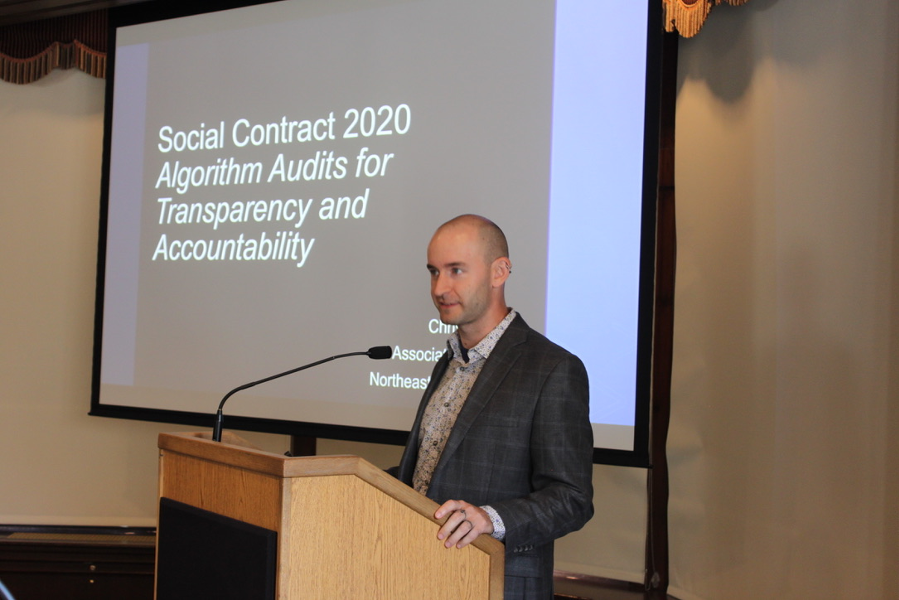
by Editor | Feb 17, 2020 | News
As a part of a transatlantic and multi-stakeholder dialogue on global challenges and policy solutions in the context of the need to create the social contract 2020, a new social contract on digital technologies and Artificial Intelligence (AI), co-organized by the World Leadership Alliance-Club de Madrid and the Boston Global Forum, the AIWS Innovation Network Roundtable started on 02/02/2020, and the first discussion will focus on auditing, balance AI Assistants, a new center of power in AI Age will be on 02/20/2020. The Social Contract 2020 propose 7 centers of power. The AIWS Innovation Network Roundtable will discuss to audit, mange, monitor and balance these 7 centers of power.
Professors Alex Pentland, MIT, Christo Wilson, Northeastern University, and Harvard Law School Fellow will present their ideas in the first discussion. There are distinguished thinkers, inventers, innovators who are members of AIWS Innovation Network will contribute their ideas and discussion. Content of the AIWS Innovation Network Roundtable will be also used for United Nations 2045 project and will collect and present on April 28, 2020 at Policy Dialog 2020 at Harvard by BGF and Club de Madrid with the attendance of more than 15 head and former head of states and governments.
The AIWS Innovation Network is a platform of United Nations 2045 project.
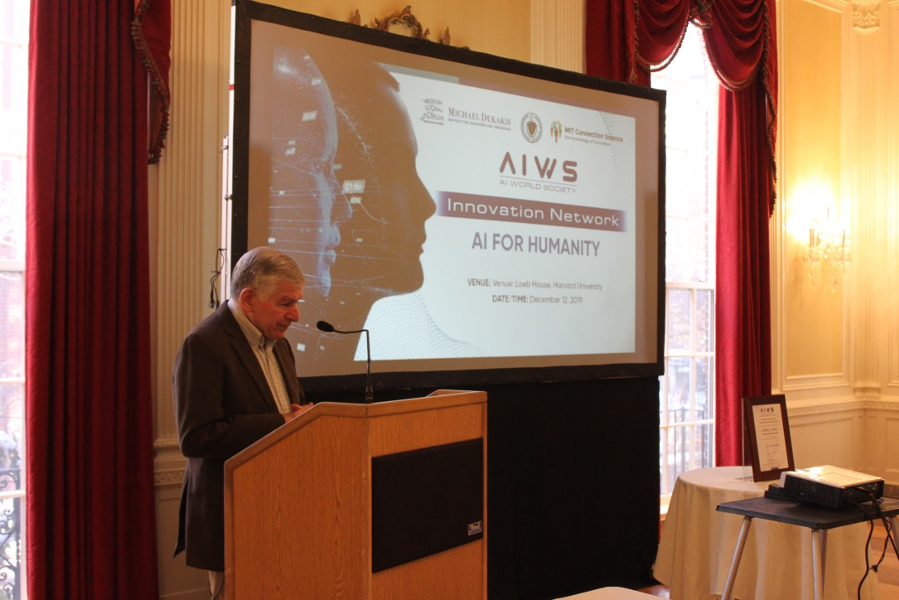
by Editor | Feb 17, 2020 | News
A new nonpartisan research center, with a pair of former governors on its advisory council, is setting out to provide lawmakers and voters with “real-time” analysis of key topics, including projected impacts of ballot questions.
Tufts University’s Jonathan M. Tisch College of Civic Life announced the launch of the Center for State Policy Analysis on Thursday.
Members of the center’s advisory council are: former Govs. Jane Swift and Michael Dukakis; Tisch College dean Alan Solomont; former Massachusetts Taxpayers Foundation President Michael Widmer; Massachusetts League of Community Health Centers general counsel and deputy CEO Michael Curry; Katherine Craven, chief administrative and financial officer at Babson College and the chair of the Board of Elementary and Secondary Education; Ted Landsmark, director of the Dukakis Center at Northeastern University; David Cash, dean of the John W. McCormack Graduate School of Policy and Global Studies at UMass Boston; Carolyn Ryan, senior vice president for policy and research at the Greater Boston Chamber of Commerce; A Better City Executive Vice President Kate Dineen; and Tufts political science professor Jeffrey Berry.
The original article can be found here.
Governor Michael Dukakis is a co-founder and Chair of the Boston Global Forum. He is also a co-founder of AI World Society Innovation Network and the Social Contract 2020.
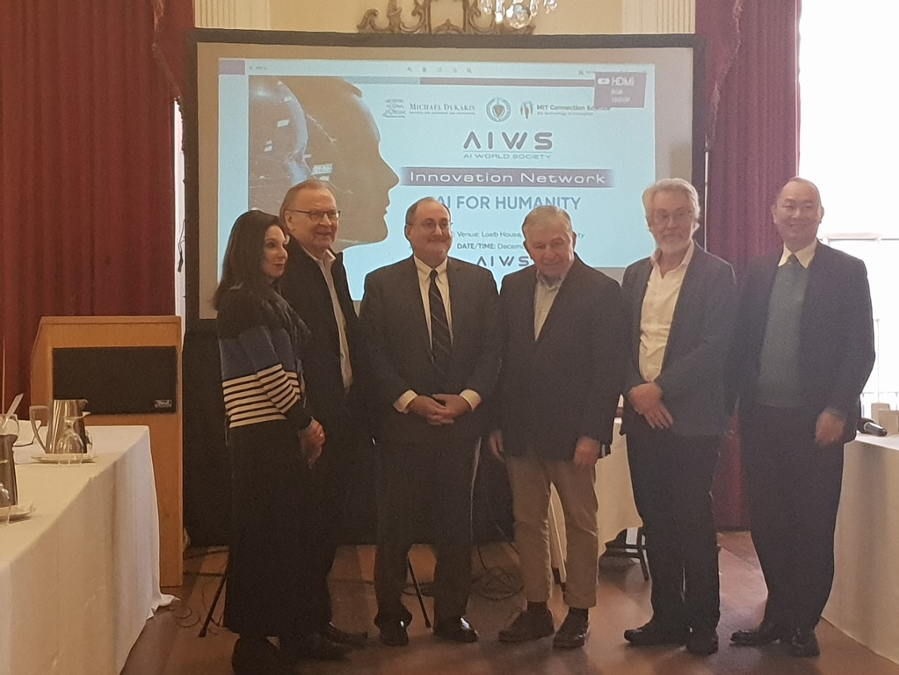
by Editor | Feb 17, 2020 | News
From 27 to 29 of April 2020, at Harvard University and MIT, the Boston Global Forum (BGF) and World Leadership Alliance-Club de Madrid are co-organizing a transatlantic and multi-stakeholder dialogue on global challenges and policy solutions in the context of the need to create a new social contract on digital technologies and Artificial Intelligence (AI).
This Policy Dialog is the AIWS Summit 2020 and focuses on discussing and building the Social Contract 2020.
There are more than 15 head and former head of states and governments of the world attending, as well as distinguished thinkers and inventors as Professor Joseph Nye and Vint Cerf who will join as speakers.
At this special event, BGF will present the World Leader in AIWS Award and AIWS Distinguished Lecture. Recipients of the World Leader in AIWS Award in the past years were Secretary General of OECD Angel Gurria (2018), and father of Internet Vint Cerf (2019).
Recently, Professor Alex Pentland, MIT, one of co-founders of the Social Contract 2020, contributed new ideas:
Traditional capitalism has evolved into AI-driven capitalism, and people around the world are deeply concerned that this is undermining our societies’ social contract. The general feeling is that balance must be restored by constructing institutions and laws that control AI, and govern data rights, ownership, and use. This new social contract will require that we build new solutions for managing civic and government systems, for digital privacy and cybersecurity, and for providing more agile, inclusive, and transparent responses to societies’ problems and for funding of supporting infrastructure.
One idea for what this new social contract might look like is summarized by the phrase “stakeholder capitalism”, that is, capitalism that benefits everyone.
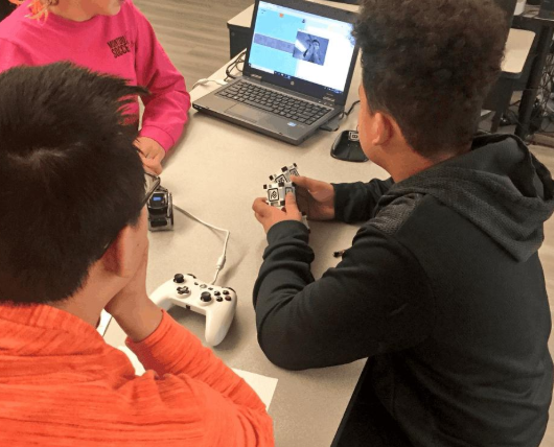
by Editor | Feb 17, 2020 | News
Artificial intelligence—code that learns—is likely to be humankind’s most important invention. It’s a 60-year-old idea that took off five years ago when fast chips enabled massive computing and sensors, cameras, and robots fed data-hungry algorithms.
We’re a couple of years into a new age where machine learning (a functional subset of AI), big data and enabling technologies are transforming every sector. In every sector, there is a big data set behind every question. Every field is computational: healthcare, manufacturing, law, finance and accounting, retail, and real estate. We all work with smart machines—and they are getting smart fast.
A World Economic Forum report indicated that 89% of U.S.-based companies are planning to adopt user and entity big data analytics by 2022, while more than 70% want to integrate the Internet of Things, explore web and app-enabled markets, and take advantage of machine learning and cloud computing
To support AI technology for future generation, AIWS Innovation Network has created AIWS Young Leaders program. The program currently includes Young Leaders from Australia, Austria, Belgium, Britain, Canada, Denmark, Estonia, France, Finland, Germany, Greece, India, Italy, Japan, Latvia, Netherlands, New Zealand, Norway, Poland, Portugal, Russia, Spain, Sweden, Switzerland, United States, and Vietnam.
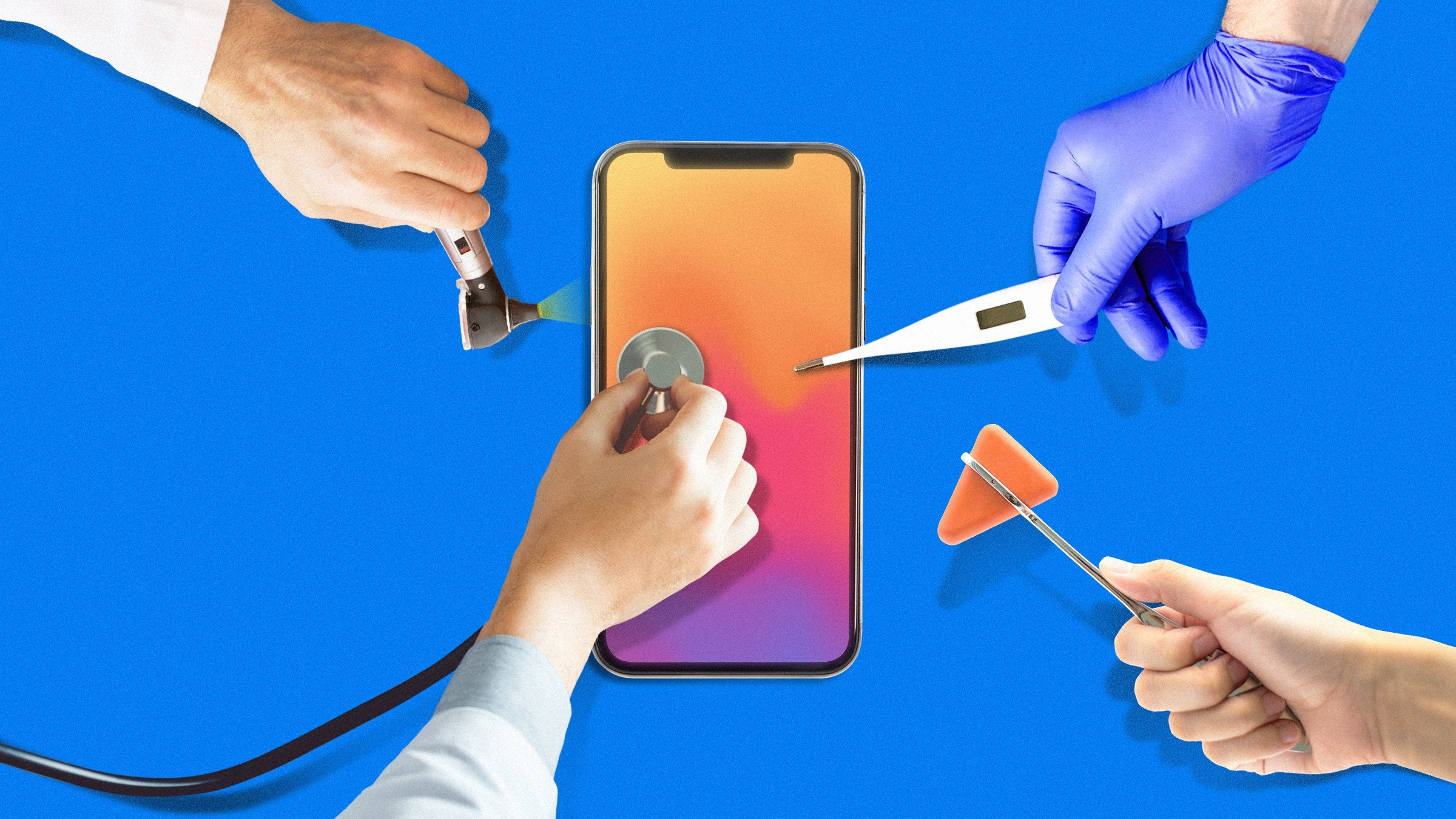
by Editor | Feb 17, 2020 | News
The coronavirus, which emerged in Wuhan, China, continues deadly. More than 31,000 people have now been contracted in China and 630 people have died, per latest figures released by authorities. As the virus already became a global health emergency, AI researchers are applying machine learning techniques to predict where it may expand elsewhere, so that we can proactively and effectively allocate resources and block the outbreak.
A research group in the UK, led by Professor Andy Tatem of the University of Southampton, used anonymized historical data from smartphones, supplied by the Chinese search company Baidu, to model how the virus may have moved out of Wuhan in the early days after it appeared. Another group of researchers used data from Tencent, who owns the popular Chinese app WeChat, to model the contagion, suggesting that the travel restrictions imposed by China may have slowed the spread of the disease by a few days.
However, it is useful to predict where the outbreak may have been expanding next. As reported on Wired, an international team is using machine learning to analyze social media posts, news reports, health public and information supplied by doctors for warning symptoms of the virus. “We are moving to surveillance efforts in the US,” said John Brownstein, CIO of Harvard Medical school and a member on the team. “We’re trying to understand what’s happening in the population at large.”
Alessandro Vespignani, a professor at Northeastern University who specializes in modeling contagion in large populations, says it is difficult due to the lack of historical data. He, however, believes that if the disease spreads more widely in the US, it should become easier to monitor its spread by applying AI.
Indeed, the approach has so far proven capable of spotting a coronavirus needle in a haystack of big data. More information can be found here, including the methods applied.
According to AI application to the society, AI World Society has established AIWS Innovation Network will connect key AI actors and provide services that can assist in the development of AI.








